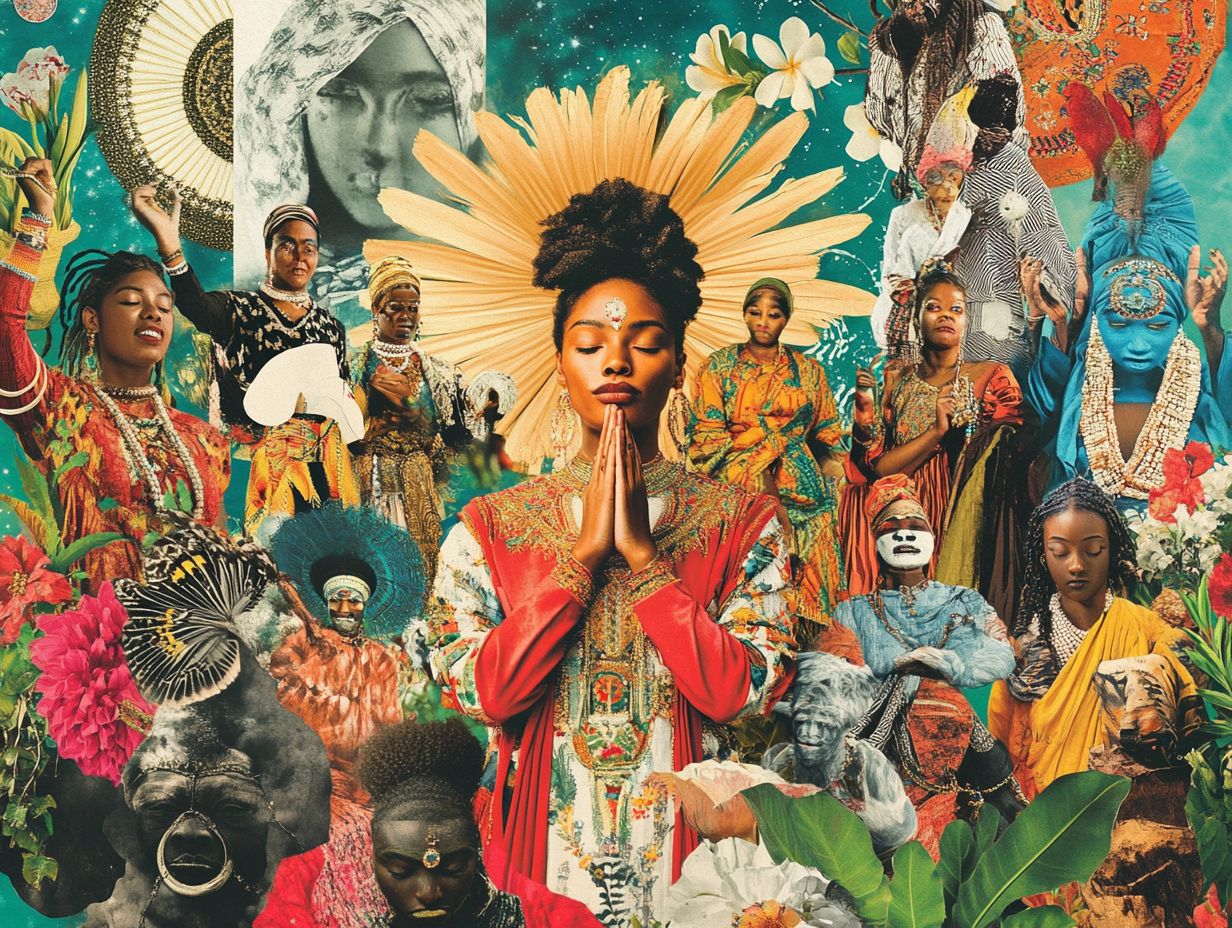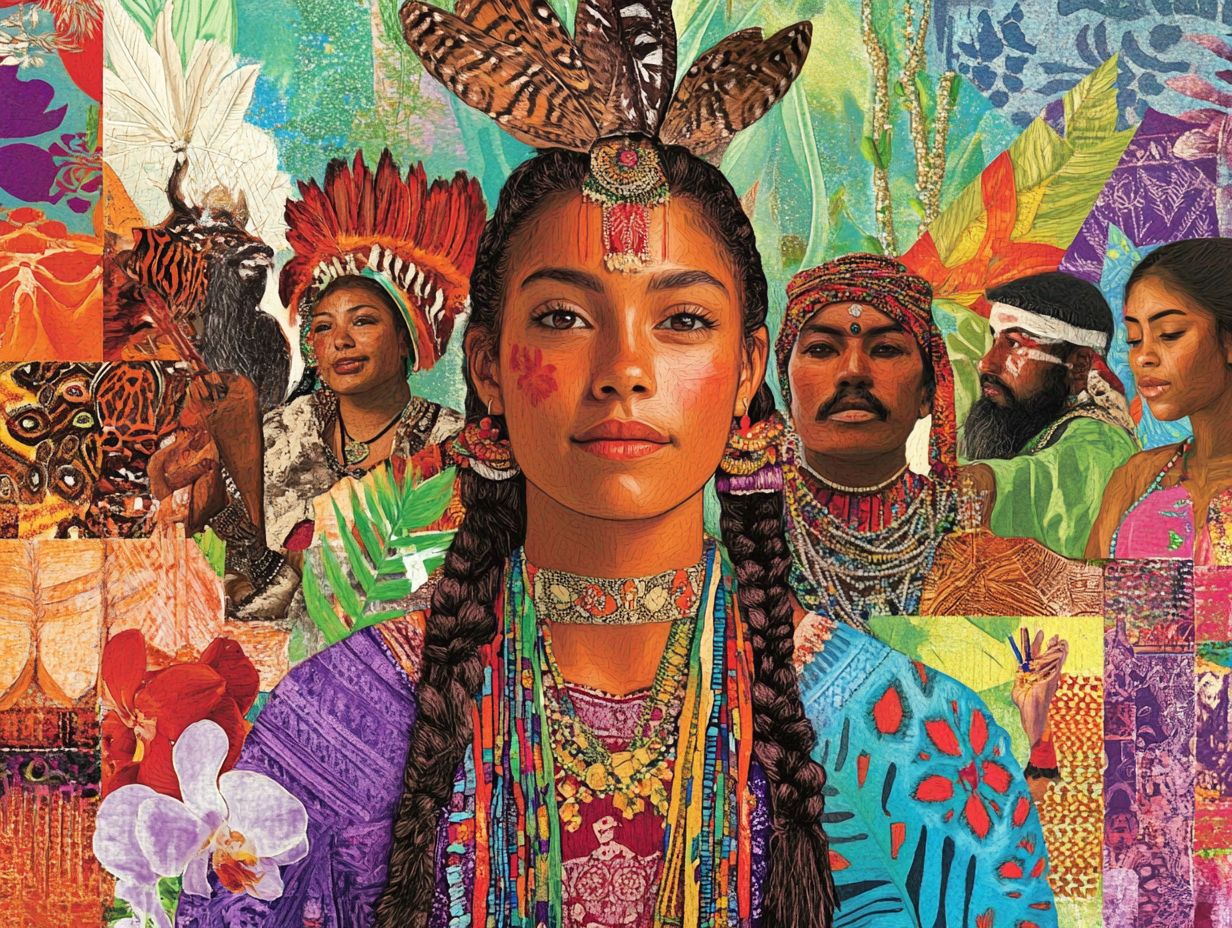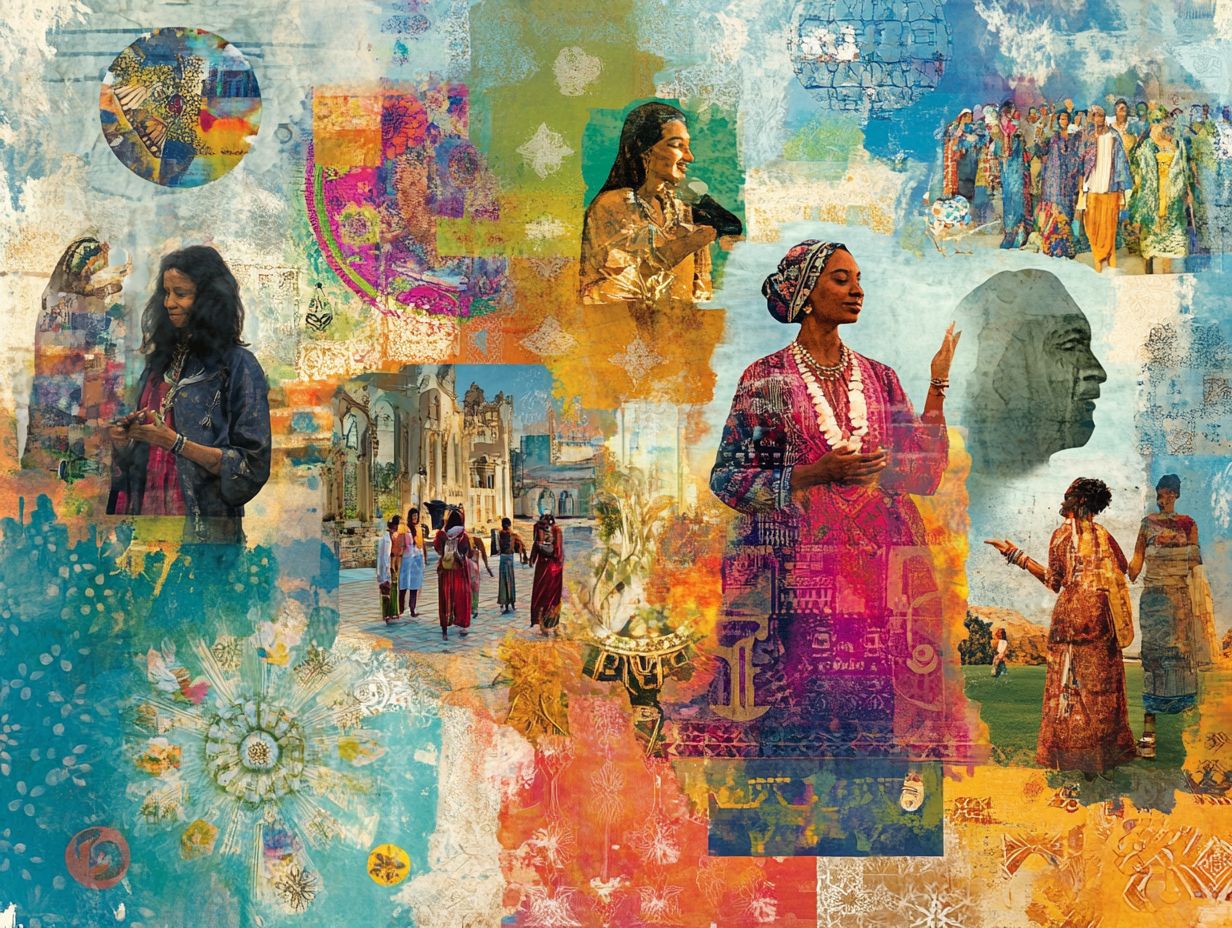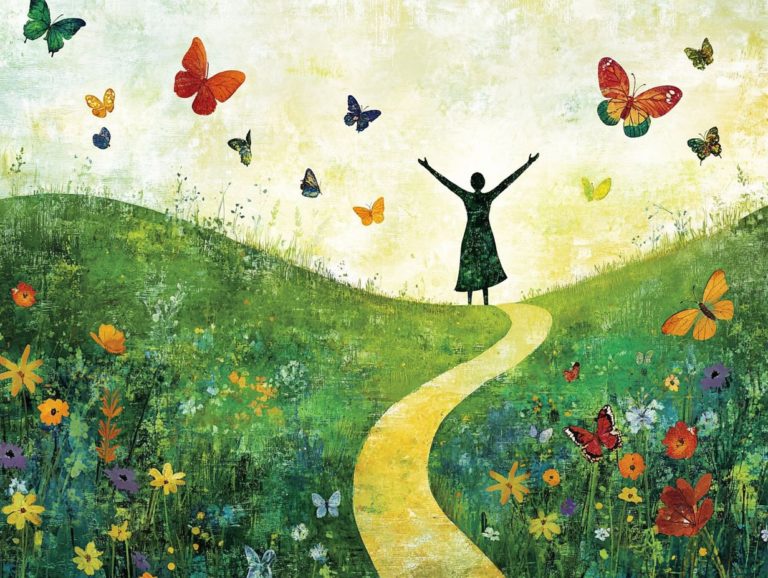Exploring Affirmations in Different Cultures
Affirmations possess a remarkable ability to shape your thoughts and influence your reality. Their origins are deeply rooted in a variety of cultures, often linked to contemporary self-help practices.
This article delves into the significance of affirmations within Western societies and explores their roles in Eastern traditions. We will also examine their foundations in Indigenous cultures.
You ll discover how these powerful statements can be tailored and woven into your daily life, enhancing your well-being and nurturing a positive mindset.
Embark on this journey as you explore the rich tapestry of affirmations and their transformative potential.
Contents
- Key Takeaways:
- The Power of Affirmations
- Affirmations in Western Culture
- Affirmations in Eastern Culture
- Affirmations in Indigenous Cultures
- Using Affirmations in Different Cultures
- Frequently Asked Questions
- What are affirmations and how are they used in different cultures?
- Are affirmations only for personal development?
- How do affirmations differ between Eastern and Western cultures?
- Do all cultures use affirmations the same way?
- Can affirmations be translated across languages and cultures?
- Are there cultural taboos regarding affirmations?
Key Takeaways:

- Affirmations have the power to transform our thoughts and beliefs, leading to positive changes in our lives.
- While affirmations have been popularized in Western culture, they have been deeply ingrained in Eastern and Indigenous cultures for centuries.
- By understanding the cultural context and incorporating traditional practices, we can adapt and combine techniques to create personalized affirmations that resonate with our unique identities and experiences.
The Power of Affirmations
Affirmations serve as a powerful catalyst for personal transformation and emotional healing, earning their place in diverse cultural practices that emphasize psychological safety and community connection.
By embracing the principles of positive thinking and intentionality, affirmations enable you to foster trust in your relationships and elevate your self-worth through mindful listening and sincere inquiry.
The influence of affirmations transcends individual growth, creating a supportive space that cherishes vulnerability and emotional support. This ultimately enriches team dynamics and lays essential cultural foundations within your community.
Understanding the Concept
Understanding the concept of affirmations is crucial for unlocking their transformative potential in enhancing self-worth and positively influencing your inner dialogue.
Affirmations are enabling statements designed to reshape your thoughts and beliefs, drawing from the principles of how our mind works. This means that what we think can really affect how we feel and act.
By consistently repeating affirmations, you can challenge negative self-perceptions and cultivate a more constructive mindset. For example, if you re grappling with low self-esteem, declaring, “I am worthy of love and respect,” can help you rewire your internal narrative.
Research supports that such practices can elevate your emotional well-being, boosting your confidence and resilience. Over time, these affirmations may catalyze profound personal growth, enabling you to pursue your goals and fully embrace your potential.
Affirmations in Western Culture
Affirmations in Western culture have undergone a remarkable transformation over the years, with their origins rooted in historical movements that championed positive feedback and radical candor.
History and Popularity

The history and popularity of affirmations in Western culture owe much to influential figures like Dr. Shad Helmstetter and Emile Coue, who championed the realms of self-help and ways of thinking that focus on the positive.
These pioneers established a foundation for a movement that transcended mere individual practices. They created a ripple effect that resonated with diverse audiences. Their teachings underscored a powerful concept: that by repeating positive statements, one could reshape self-perception and fundamentally transform emotional states.
As time progressed, this practice permeated various self-help workshops, therapeutic settings, and even mainstream media, leading to broader societal acceptance. As more individuals embraced affirmations, they began to experience profound emotional healing and personal growth, demonstrating how consistent, positive self-dialogue can open the door to a more enabled and fulfilled life.
Affirmations in Eastern Culture
In Eastern culture, affirmations are deeply connected to spiritual practices, particularly within Buddhism. They serve as powerful tools for emotional support and personal mindfulness, enriching your journey toward self-awareness and inner peace.
Incorporating Affirmations in Daily Life
Incorporating affirmations into your daily routine can significantly enhance your mindfulness and boost your emotional well-being. By weaving these positive statements into your day, you can cultivate a deeper sense of self-awareness and intentionality.
For instance, starting your day by repeating affirmations in front of the mirror can set a wonderfully positive tone. Practicing them during stressful moments, like traveling to work or at your job, helps reinforce your resilience. Many traditions highlight the transformative power of spoken words; for example, Native American tribes often engage in mantra-like chants to align their thoughts and actions with the spirit of the universe.
Regularly engaging in this practice nurtures your emotional healing and enables you to face life s challenges with greater fortitude!
Affirmations in Indigenous Cultures
Affirmations in Indigenous cultures resonate with profound cultural values and healing narratives. They not only fortify community bonds but also foster emotional well-being. Engaging with these affirmations connects you to a rich heritage, enhancing your sense of belonging and inner strength.
Traditional Practices and Beliefs

Practices surrounding affirmations in Ubuntu and Zulu cultures highlight the importance of community and interconnectedness. This interconnectedness is not just a cultural principle; it embodies wisdom passed down through generations.
In Indigenous communities, affirmations capture the essence of life experiences, intertwining personal stories with the collective identity. By sharing these affirmations, you contribute to a nurturing environment where trust blossoms, strengthening relationships and recognizing the unique value each individual brings.
These practices resonate deeply within the community, fostering emotional strength and unity while reminding everyone of their vital role in the larger tapestry of life. Ultimately, this shapes a harmonious existence rooted in respect and mutual understanding.
Using Affirmations in Different Cultures
Utilizing affirmations across various cultures requires understanding cultural connections and thoughtfully adapting techniques to enhance mindfulness and foster positive thinking.
Adapting and Combining Techniques
Adapting and blending affirmation techniques from various cultural backgrounds can significantly elevate your personal growth and cultivate emotional strength!
As you explore the rich tapestry of affirmation practices, you unlock a deeper understanding of yourself and learn to appreciate diverse perspectives. For example, integrating the Buddhist practice of Metta, or loving-kindness, with the assertive affirmations found in Western psychology strikes a harmonious balance between self-acceptance and proactive self-advocacy.
Imagine starting your day by silently repeating phrases of goodwill toward yourself and then transitioning into affirmations that highlight your goals. This thoughtful blend can truly enhance your self-care routine and improve your interpersonal relationships. By nurturing goodwill within, you naturally extend compassion to others, deepening your connections with friends and family.
Frequently Asked Questions
- What are affirmations? Affirmations are positive statements that help you challenge and overcome negative thoughts.
- How can I start using affirmations? Begin by choosing simple, positive phrases that resonate with you!
- How often should I practice affirmations? Try to incorporate them into your daily routine for the best results!
Start incorporating affirmations into your daily life and experience the difference it can make!
What are affirmations and how are they used in different cultures?

Affirmations are positive statements we repeat to boost our thinking and self-belief. While the exact statements vary worldwide, the goal is the same: to uplift ourselves.
Are affirmations only for personal development?
No, they are also part of collective cultural practices. For instance, group chants or rituals can use affirmations to honor ancestors or deities.
How do affirmations differ between Eastern and Western cultures?
Eastern affirmations often emphasize harmony and connection, while Western ones tend to focus on individual goals. The language and beliefs in these affirmations can also vary significantly.
Do all cultures use affirmations the same way?
No, cultural practices around affirmations can differ widely. Some may see them as a form of prayer or meditation, while others view them as tools for manifesting desires.
Can affirmations be translated across languages and cultures?
Yes, but it’s crucial to consider cultural nuances. The translated affirmation must retain its original intention and meaning.
Are there cultural taboos regarding affirmations?
Yes, it’s essential to respect cultural sensitivities. Avoid misusing or appropriating affirmations from other cultures. Always approach them with respect and understanding.






